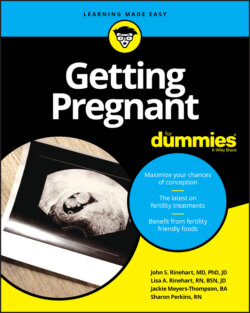Читать книгу Getting Pregnant For Dummies - Sharon Perkins - Страница 59
Timing and fertility
ОглавлениеTiming is everything when it comes to getting pregnant. Many women miss the mark month after month because of mistaken ideas about the best time to get pregnant.
Sperm and eggs both have a short shelf life; eggs are capable of being fertilized for around 24 hours, and sperm can live up to four days in the proper environment, such as the fluid that fills the fallopian tubes. That means that if you don’t have sex within a few days before ovulation, you’re not going to get pregnant.
Many women have been conditioned to believe that ovulation occurs on day 14; they have sex on days 12, 13, or 14 in hopes of hitting the right time. But the most consistent thing about your menstrual cycle should be that ovulation occurs 14 days before your period begins. So, if your cycles are 28 days, you ovulate on day 14. But if your cycles are short, say 25 days, you’re actually ovulating on day 11, and having sex starting on day 12 will be too late to achieve a pregnancy.
On the other hand, if your cycles are long, say 34 days, you don’t ovulate until day 20. Having sex on day 14 will be way too early, since sperm don’t live for a week.
So, timing sex correctly when you want to get pregnant is dependent on a solid knowledge of when you’re ovulating. We discuss the ways ovulation can be most accurately predicted in Chapter 6.
Sperm live longer in your body than the egg, so err on the early side when deciding when to start having sex. Every other day is enough, and there is no harm in having extra sperm around. When in doubt, just do it!
